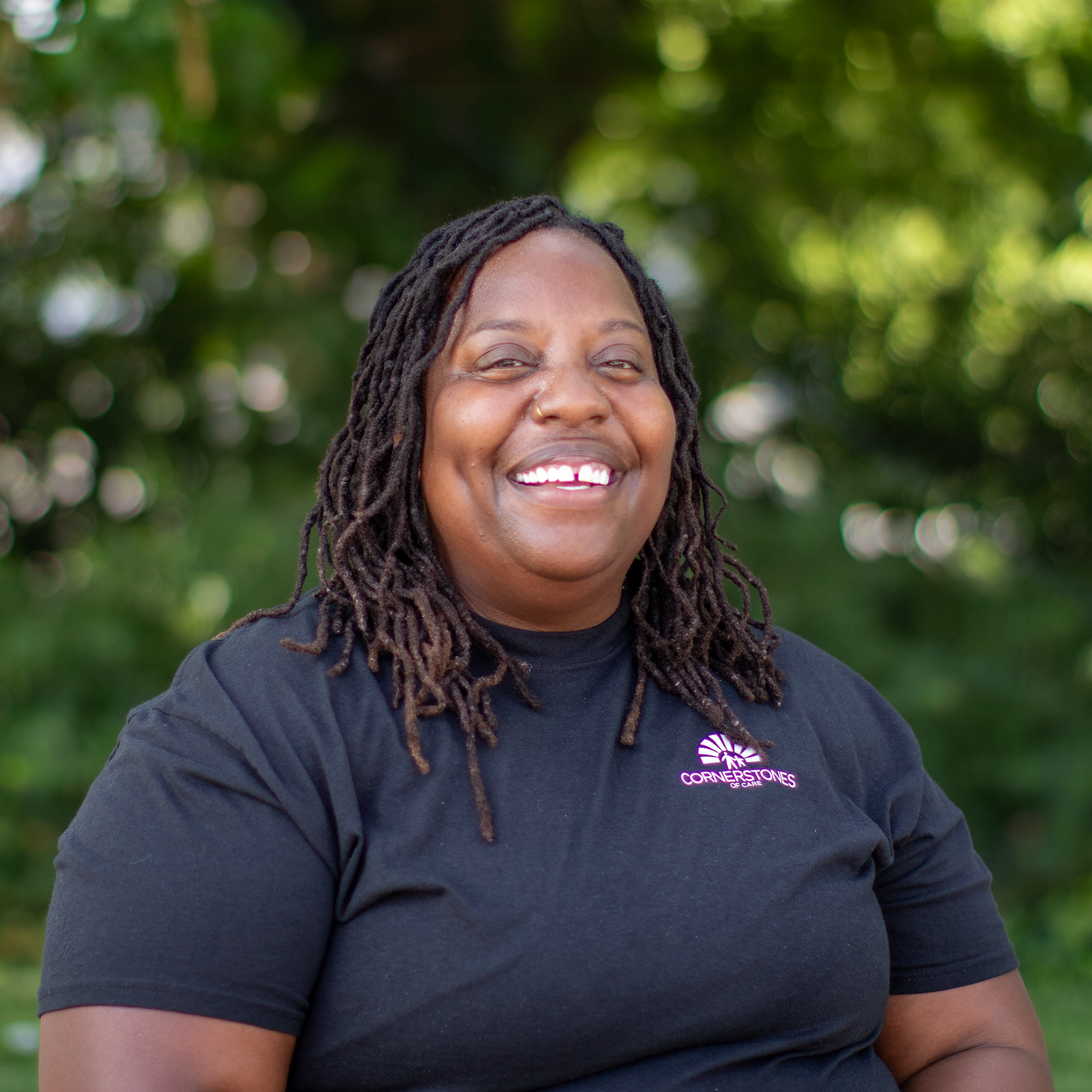Jessica Hall’s journey as a teacher at the Gillis Campus Day Treatment School all started with her love of basketball.
The year was 2004, and Jessica was planning to pursue a coaching career following a successful run playing collegiate division I basketball at Texas State University. She secured a coaching position at Penn Valley Community College when a friend encouraged her to apply for a position as a Youth Behavioral Health Specialist at Cornerstones of Care, where she would work with youth in residential treatment.
Initially, the job was just a way to pay the bills and support her coaching career.
“After a while, it turned out I had a knack for it,” said Jessica. “Within a year, I was the evenings coordinator. Then the Family Focus Specialist, the Family Youth Manager, and the Program Manager, in which I ran the residential facility.”
A decade later, Jessica decided to step back from the intensity of residential care. Though she loved working with the kids, she felt a strong pull to try something different.
“One thing I learned from being a part of Gillis was that if you have unconditional regard and each child has a champion, then they can succeed,” said Jessica. Despite her choice to leave residential care, Jessica was determined to continue being a champion for kids who had experienced trauma. “I needed to be that person. I needed to give them a good person who had their back and had hope for them each day.”
So, she became a teacher.
Today, Jessica is a middle school teacher at the Gillis Campus Day Treatment School, which serves students grades K-8 who require an intensive combination of special education and therapy services. Students at the Gillis and Ozanam Campuses are referred from 33 school districts in Missouri and Kansas. Through individualized curriculum and small class sizes, students attain the skills and strategies they need to graduate from high school or transition back to their home school districts.
As a former basketball player and coach, Jessica is known for her passion for her students and her ability to relate with kids of all backgrounds. She easily forms close relationships and can oftentimes be found playing basketball in the gym or outside with the kids during recess.
“It’s all about how you communicate and how you show patience,” said Jessica. “I use a lot of we versus I language. I tell them, ‘I’m here for you. I’m supporting you.’”
Like many who work at Cornerstones of Care, Jessica is aware that people often misunderstand her work and the kids in treatment, labeling them with diagnoses and stereotypes. Skepticism about whether kids who have experienced significant trauma are truly capable of change isn’t uncommon. However, Jessica knows otherwise.
“I already have three success stories within the time I’ve been here,” said Jessica, now in her sixth year in the classroom.
One student arrived at the Gillis Campus after the COVID-19 pandemic as a sixth-grader with a third-grade reading level. Two years later, he’s reading at the ninth-grade level and meeting all the standards in core subjects. He’s on track to graduate and transition to Northeast High, where he plans to pursue football and participate in the ROTC program.
Another student recently received a scholarship with KC Scholars and is the top student in his class.
“The first thing to change is their confidence in themselves,” said Jessica. “I like seeing that epiphany and those changes, when kids realize, ‘Man, I can do something.’ You give them the tools and the belief, and you see the change.’”
Growth and change are core commitments at the Gillis Day Treatment School. One way this is encouraged is through a collaborative, communicative atmosphere where team members talk through their challenges and share information about how they can best support their students. This mentality resonates throughout Cornerstones of Care programs, including the BIST program, where teachers are invited to complete training each summer.
“It’s important how we share ideas,” said Jessica. “It’s not just my classroom, my student, my problem. We all have the same vision of what we want for our students, and because of that, we’re all on board and supportive.”
Jessica felt that support from her team as she worked towards and graduated with her Master’s in Curriculum and Instruction in December 2023. She remained dedicated to her position at Gillis throughout her studies and aspired to serve as a role model for her students, demonstrating that perseverance, high expectations, and unwavering dedication can lead to significant accomplishments and personal fulfillment.
“When you put your mind to something and want to be successful, you don’t quit,” said Jessica. “There’s a reason I keep my expectations high. Just because you’re at Gillis doesn’t mean I can’t have the same expectations of you as someone in general education.”
For Jessica, one of the most important lessons she has learned is to meet each student where they are at. While some may require more time and patience, all have the ability to learn and grow. The hope is that each student leave the classroom feeling like they can achieve big things.



